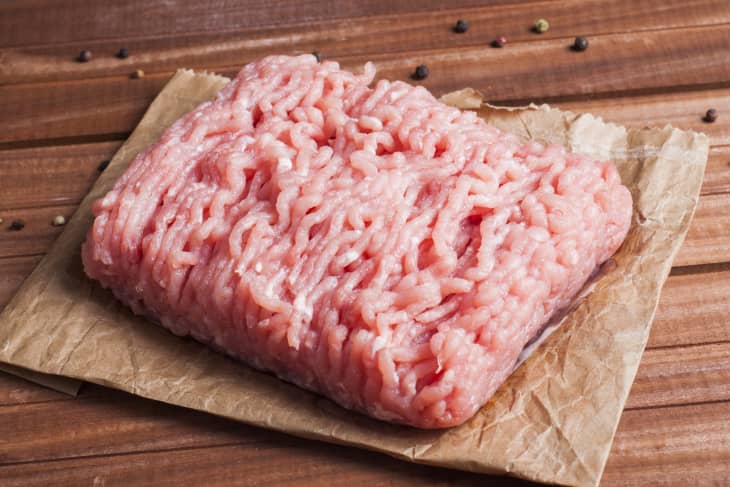Jenni-O Recalls an Additional 164,000 Pounds of Raw Turkey Due to Salmonella
As we look back on trends of the past year, one that seems to be prevalent, unfortunately, is contaminated food. Many staple foods we enjoy have been subject to their own recalls this year, from romaine lettuce to summer fruits like watermelon, honeydew, and cantaloupe to millions of pounds of meat including chicken, beef, and turkey. Sadly, the CDC has an additional warning on raw turkey that you should know about.
As I previously reported, on November 8th, the CDC released an Investigation Notice detailing 164 cases of Salmonella infections (which has since grown to 216 cases, including 1 death, as of this writing) in 38 states (that figure has remained the same) since July of this year. That recall, which involved more than 91,000 pounds of various turkey products, proved to be only the beginning — turkey manufacturer Jennie-O announced an additional recall of 164,000 pounds of their brand’s raw ground turkey products that were produced on October 22 and 23.
According to the U.S. Department of Agriculture’s Food Safety and Inspection Service (FSIS), Jennie-O’s turkey may have been contaminated with Salmonella Reading, a strain of Salmonella that produces symptoms common to the bacteria (within 12-72 hours, people infected with Salmonella develop diarrhea, fever, and stomach cramps, and can lead to much more serious complications if not treated.) The Salmonella Reading strain has also been linked to non-Jennie-O turkey products involved in the recall.
“State and local health departments continue to interview ill people about the foods they ate and other exposures in the week before they became ill,” said FSIS in their Investigation Notice.
According to FSIS, 54% of the 108 ill people they interviewed reported preparing or eating turkey products that were purchased raw, “including ground turkey, turkey pieces, and whole turkey.” (And that makes total sense, given the typical Thanksgiving/Christmas holiday menus in many homes). Unfortunately, a single common supplier of this outbreak of Salmonella in turkey hasn’t been identified, since many of the people they interviewed listed numerous turkey manufacturers, including but not limited to Jennie-O.
Still, you can check to see if any ground turkey you have is part of this most recent recall by looking for the establishment number “EST. P-579” (which can be located inside the USDA mark of inspection or printed on the side of the tray). A full list of Jennie-O products that may be contaminated:
- 3-lb. packages of “Jennie-O Ground Turkey 93% Lean, 7% Fat” with “use or freeze by” dates of November 12 and 13, 2018 on the side of the trays
- 1-lb. packages of “Jennie-O Ground Turkey 93% Lean, 7% Fat” with a “use or freeze by” date of November 12, 2018 on the side of the trays
- 1-lb. packages of “Jennie-O Taco Seasoned Ground Turkey” with a “use or freeze by” date of November 12, 2018 on the side of the trays
- 1-lb. packages of “Jennie-O Italian Seasoned Ground Turkey” with a “use or freeze by” date of November 12, 2018 on the side of the trays
- 3-lb. packages of “Jennie-O Ground Turkey 85% Lean, 15% Fat” with a “use or freeze by” date of November 13, 2018 on the side of the trays
- 2.5-lb. packages of “Jennie-O Ground Turkey 93% Lean, 7% Fat” with a “use or freeze by” date of November 13, 2018 on the side of the trays
- 3-lb. packages of “Stater Bros. 85% Lean, 15% Fat All Natural Ground Turkey” with a “use or freeze by” date of November 12, 2018 on the side of the trays
Like I’ve said previously, there are a few easy steps you can take in order to prevent Salmonella contamination. They include: washing your hands after handling raw turkey, keeping raw products in designated areas and keeping those places clean (keeping your turkey-thawing area in one single spot: inside of the refrigerator, in the sink with water changed every 30 minutes, or in the microwave, for instance). Never thaw your turkey by leaving it out on the counter.
Also, the temperature of cooked turkey is paramount to thoroughly kill harmful germs: 165°F is the internal temperature of a safely cooked turkey.
A complete set of turkey safety tips (including how to handle your pet’s turkey food — don’t forget your furry children!) can be found on the CDC’s website.
